How to Determine What is Important
 jorzel
jorzel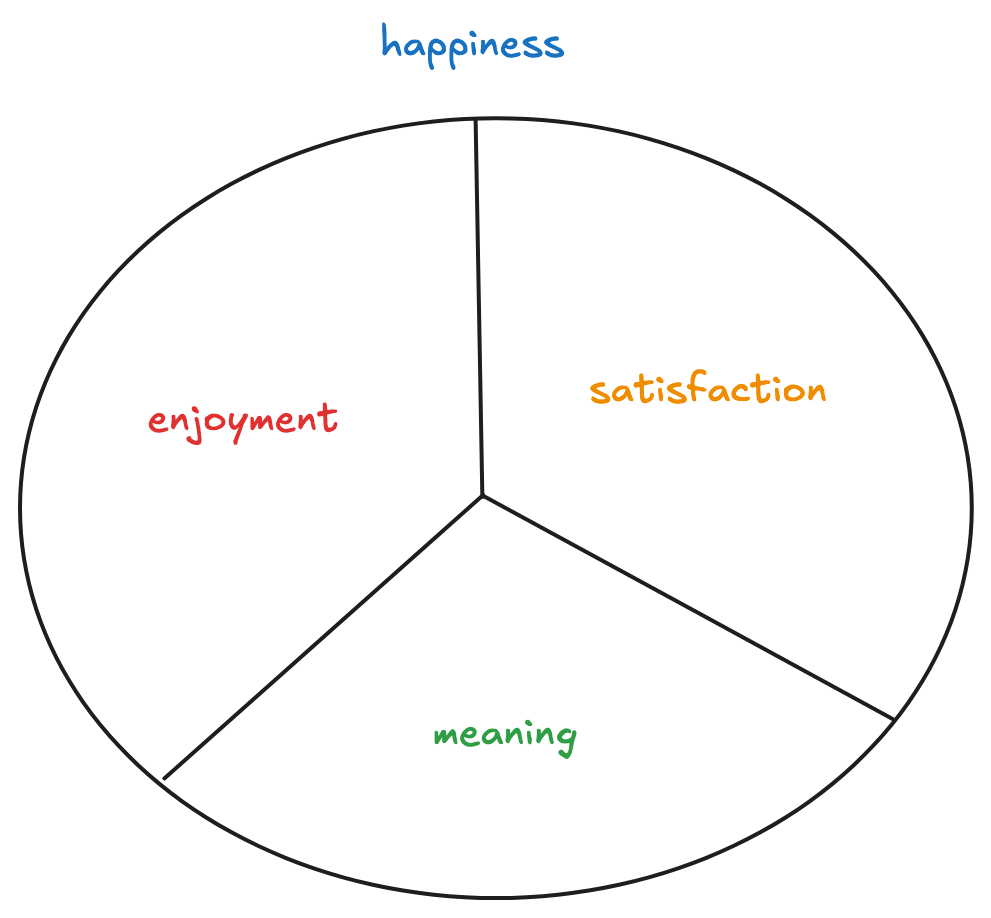
Introduction
The ability to prioritize what is important seems like a simple idea. Frameworks like the Eisenhower Matrix urge us to distinguish between the urgent and the essential, emphasizing that we must focus on what truly matters. But there’s a deeper question here: how do we determine what is important in the first place?
Is it tied to what we want, the person we hope to become, or the legacy we wish to leave? Answering this question requires more than a to-do list; it demands an exploration of our values, aspirations, and even our mortality.
What I aim to offer here are several perspectives on identifying importance—approaches that are sometimes overlapping, sometimes complementary, and sometimes reframed versions of the same truth. Together, they provide a framework for setting life priorities and avoiding the inertia of daily distractions.
"Many people have a hard time making decisions because they don't know what is important. When you have a clear mission and you are completely sure what is important to you, most decisions become easy. Once you're fully committed, you don't need rules for how to spend your time. It's obvious which decision to make. It's clear what to prioritize. Many people don't need productivity or time management advice. They need conviction."
J. Clear
Aspirations
At the heart of determining what is important lies your aspirations—not just the goals you pursue, but the person you hope to become. Aspirations provide a guiding light, helping you prioritize what aligns with your deeper sense of purpose.
Philosopher Agnes Callard during the podcast conversation with Adam Grant draws a clear distinction between ambition and aspiration:
Ambition is about achieving specific goals. It often centers on predefined outcomes — titles, status, awards, or milestones.
Aspiration, on the other hand, is about creating a new identity. It’s a process of transformation where you work toward becoming a different kind of person, someone who values things you don’t yet fully grasp.
Aspiration is inherently risky because it pulls us into the unknown. The journey can feel uncertain or even uncomfortable as we shift and grow. However, this transformational quality is what makes aspiration so powerful—it’s not about what you achieve but who you become.
Some critique aspirations as being inherently egocentric, and focused on personal growth or self-image. But aspirations can also be deeply social and relational.
You can aspire to be a loving partner, a caring parent, or a supportive friend. These aspirations aren’t about selfish goals but about nurturing meaningful relationships and contributing to the lives of others.
Aspirations provide a framework for decision-making. For instance: If your aspiration is to be a good father, then decisions around your time, career, or commitments can be evaluated based on whether they support or hinder this meta-goal.
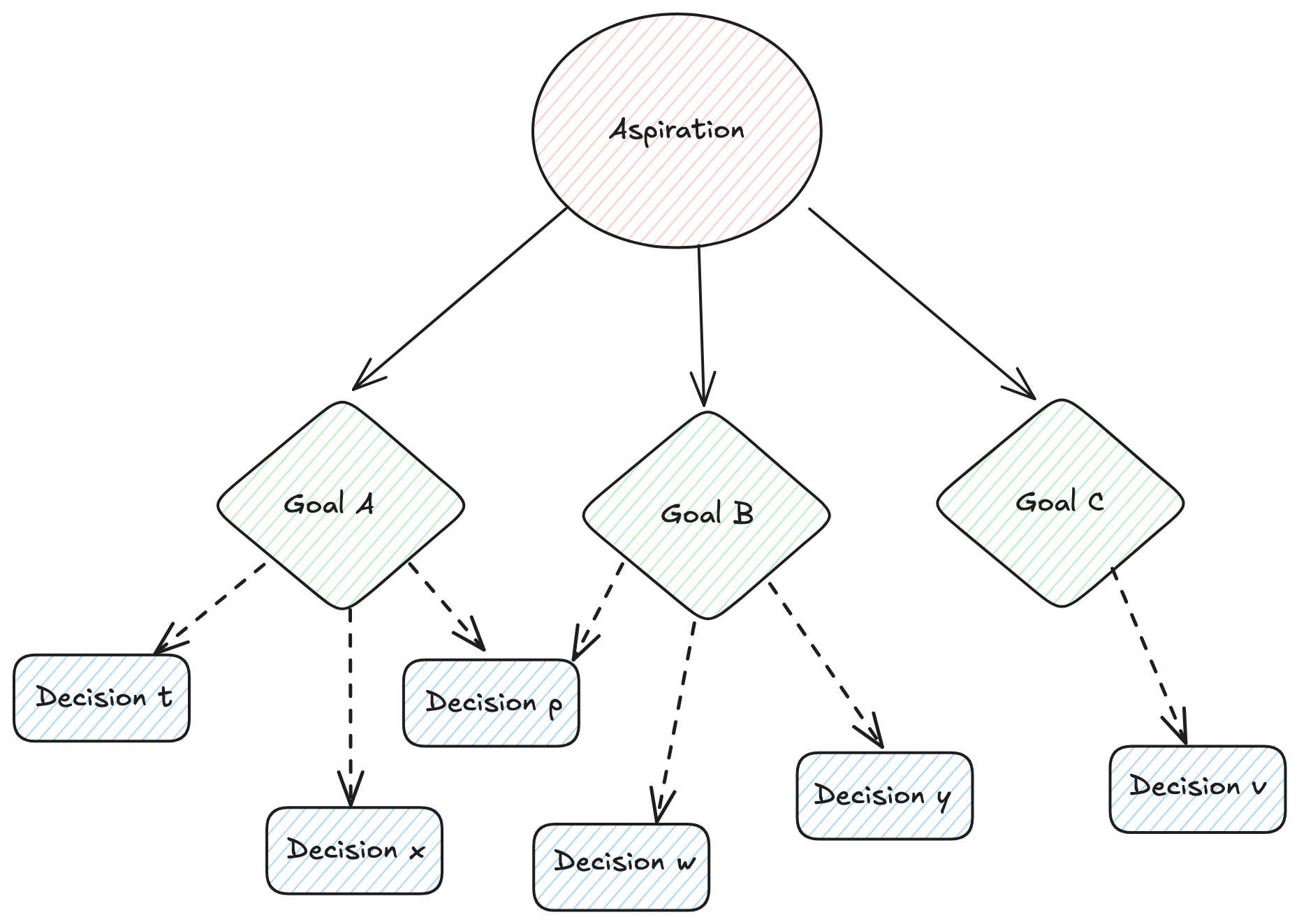
One of the paradoxes of aspirations is their duality: they are concrete yet flexible. A well-formed aspiration might feel specific (e.g., “to be a source of kindness”), but it allows multiple paths to realization.
When you root your identity in aspirations rather than specific goals, you become more resilient. If one goal fails, the aspiration remains intact, allowing you to reframe and continue forward.
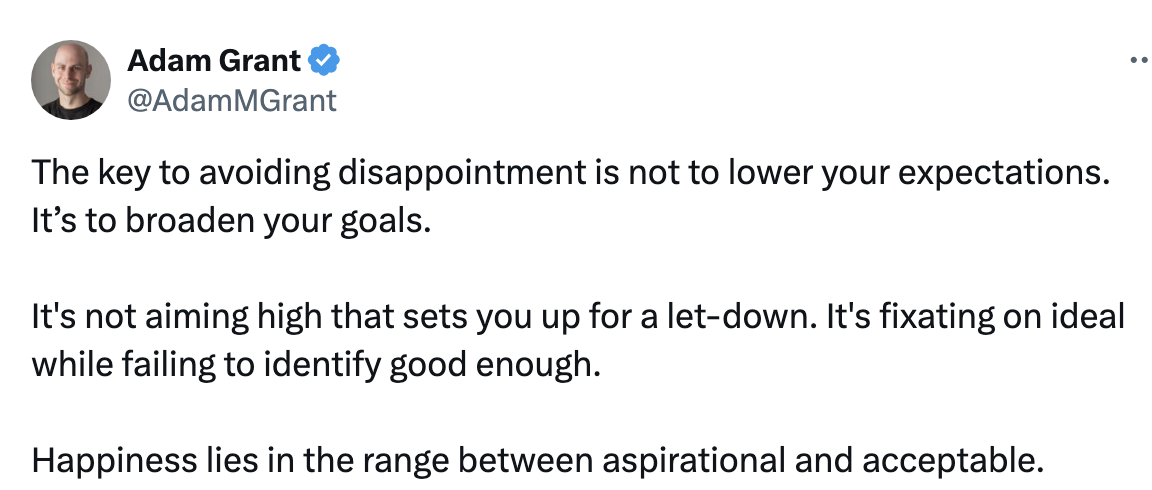
Aspirations challenge us to redefine our values, create new identities, and strengthen connections with others. By placing aspirations at the center of our decision-making, we create a framework for prioritizing what matters most—whether to ourselves, our loved ones, or the world around us.
The End
"And in the end, it' not the years in your life that count. It's life in your years."
A. Lincoln
There is perhaps no sharper lens for understanding what is important than the awareness of our own mortality. The finality of life forces us to ask: What truly matters?
Our culture often encourages us to avoid thinking about death, framing it as something to fear or evade. But by confronting our mortality, we unlock a powerful tool for prioritization. When we reflect on life from the perspective of its end, it becomes easier to discern what is meaningful and what is trivial.
Consider this thought experiment: Imagine looking back on your life from your deathbed. What will you regret not having done? Which relationships, contributions, or experiences will hold the most weight?
When we examine life through the lens of mortality, certain patterns emerge. People rarely regret material losses or missed opportunities for superficial success. Instead, they find meaning in:
Relationships: The love they gave and received.
Legacy: How they contributed to others or left the world better.
Growth: The courage to face challenges and grow into their fullest selves.
Authenticity: Living a life true to their values and beliefs.
Awareness of mortality isn’t about dwelling on the inevitable; it’s about gaining clarity on what gives life meaning. When we embrace this perspective, we stop drifting through life and start living with a purpose that drives our actions.
Paradoxically, the finiteness of life is what makes it precious. If we had unlimited time, the urgency to prioritize would disappear. Instead, the constraint of mortality reminds us that our time is limited, forcing us to carefully choose how we spend it.
Happiness is a direction
Many people assume that the ultimate aim of life is to be happy. However, this view often reduces happiness to a fleeting emotional state, like pleasure. As Arthur Brooks discusses in his conversation with Becky Kennedy, this misconception leads people to chase emotions that are fleeting, unreliable, and ultimately unsatisfying. In reality, happiness is much deeper—it is not a state but can be a direction of our life.
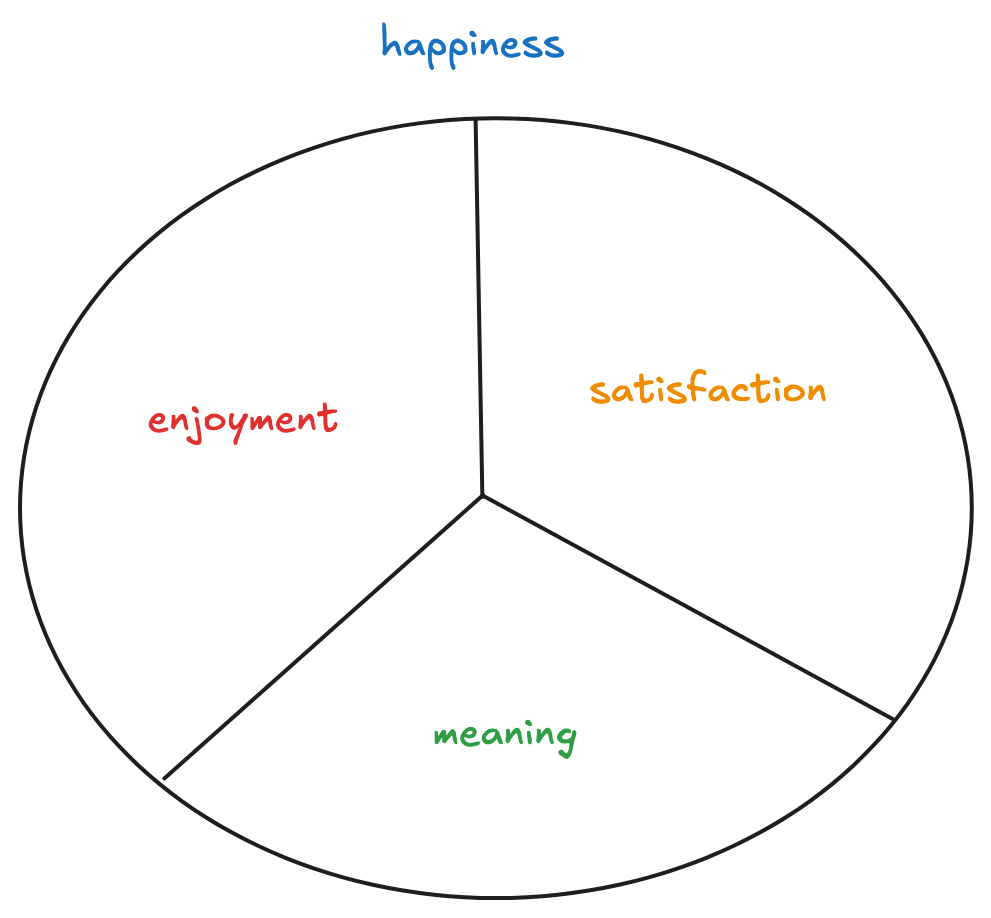
Brooks emphasizes that happiness rests on three fundamental pillars. Together, they create a sustainable and fulfilling life:
Enjoyment: This includes the joys of relationships, hobbies, and everyday pleasures that bring lightness and warmth to life.
Satisfaction: Happiness also requires the sense of accomplishment that comes from striving, struggling, and succeeding. Satisfaction often arises from working through challenges, achieving long-term goals, and growing as a person.
Meaning: The most profound pillar of happiness is purpose—feeling that your life matters, that your actions contribute to something larger than yourself. Meaning connects your struggles and joys into a coherent story of significance.
Brooks also highlights how happiness often involves difficult trade-offs. The things that bring deep satisfaction and meaning—raising children, building relationships, pursuing mastery—are not always enjoyable in the moment. Waking up at 3 a.m. for a crying baby is far from pleasant, yet it aligns with the deep aspiration of being a loving parent.
Happiness, then, is not about constant pleasure but about balancing short-term sacrifices for long-term fulfillment.
Needs - the sailboat of life
Understanding what is important begins with recognizing our fundamental needs and how they interact with our aspirations for growth. Psychologist Abraham Maslow’s famous hierarchy of needs has evolved into a compelling metaphor—a sailboat, representing the interplay between security and exploration.
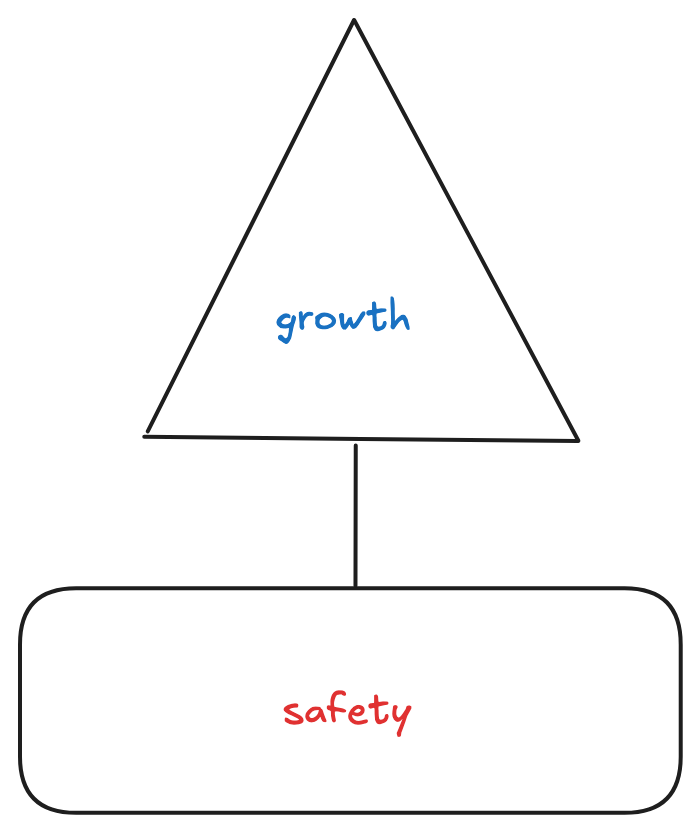
In Maslow’s metaphor, the boat’s hull represents security: the need for safety, stability, and connection. The sail, on the other hand, symbolizes growth: our drive to explore, achieve, and self-actualize. To move forward in life, both components are essential.
Many people downplay the importance of safety, treating it as secondary to ambition or achievement. However, the foundation of stability—both emotional (trust, belonging) and material (money) - is crucial for growth.
As much as we hear that “money doesn’t buy happiness,” money can buy opportunities, reduce stress, and create the conditions for meaningful growth—depending on how it is used.
Life’s purpose isn’t to stay safe but to grow and contribute. Yet, to set sail toward your aspirations, you must first secure your boat. Balancing safety and growth allows you to navigate life’s challenges. We need to remember that both aspects are important and should complement each other.
“A ship is always safe at the shore, but it is not what it is built for"
John A. Shedd
Living to yourself
“Integrity is telling myself the truth. And honesty is telling the truth to other people”
Spencer Johnson
To live a meaningful life, you must live to yourself—a concept that goes beyond living by yourself or for yourself. It is about aligning your life with your values and maintaining integrity, even in the face of external pressures.
Not By Yourself: This isn’t about isolation or rejecting others’ input. Relationships and community matter deeply.
Not For Yourself: Living to yourself doesn’t mean being selfish. It involves living for purposes greater than personal gain, rooted in your values.
Living to yourself means doing the hard work of defining your own values and beliefs—and then consistently acting in accordance with them. It is a commitment to authenticity over conformity and principles over convenience.
To live to yourself, you must first determine what you truly stand for. This requires introspection and courage:
What do I value most? (e.g., love, justice, creativity, growth)
What principles guide my decisions?
What kind of person do I want to be?
Integrity is the cornerstone of living to yourself. It means staying true to your principles, even when it’s uncomfortable or unpopular.
Your decisions, whether big or small, should be driven by the values you’ve defined
Conclusion
While the perspectives we've explored—aspirations, mortality, happiness, needs, integrity—may seem different, they all point to the same core idea: we need a mental model of our identity.
Ultimately, we discover what is truly important to us only when we have a clear understanding of the person we want to become.

Subscribe to my newsletter
Read articles from jorzel directly inside your inbox. Subscribe to the newsletter, and don't miss out.
Written by

jorzel
jorzel
Backend developer with special interest in software design, architecture and system modelling. Trying to stay in a continuous learning mindset. Enjoy refactoring, clean code, DDD philosophy and TDD approach.